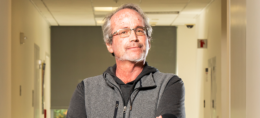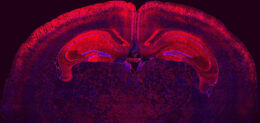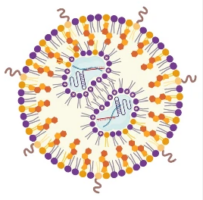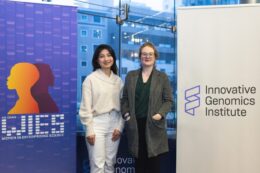BioE News
Herr Lab Postdoc Wins AIP Best Paper
Trinh Lam, a postdoc in Amy Herr’s lab, has won the Biomicrofluidics Best Paper Award from AIP Publishing at the 28th International Conference on Miniaturized Systems for Chemistry and Life Sciences – Micro-Total Analysis Systems (µTAS 2024).
Read MoreArkin Lab receives ARPA-H award for microbiome engineering
Adam Arkin has been granted an award of over $20 million from the Advanced Research Projects Agency for Health (ARPA-H) to pursue microbiome engineering to create probiotic bacterial communities that prevent and treat lung pathogens.
Read MoreCould a new medical approach fix faulty genes before birth?
Murthy lab and UC Davis have developed a unique mRNA delivery method for in-utero gene editing for neurodevelopmental conditions.
Read MoreThermostable Cas9 Enhances RNP Performance in Lung and Liver
Niren Murthy et al. have developed a more stable version of the Cas9 enzyme to improve delivery of CRISPR-Cas9 ribonucleoproteins (RNPs) for in vivo gene editing.
Read MoreHealy Lab startup receives LSEC Venture Grant
MuscleMatrix and their hydrogel scaffold for muscle loss injuries is part of LSEC’s 2nd cohort of Venture Grant startups.
Read MoreTimes Higher Ed ranks UC Berkeley No.1 public university in U.S.
Times Higher Education again ranks UC Berkeley the number one public university in the U.S.
Read MoreFaculty Focus on Leah Guthrie
Professor Leah Guthrie works to understand how the microbiome metabolites and proteins communicate with our human cells to influence our physiology and pathophysiology. Learn more about Guthrie in this interview with QB3.
Read MoreDelcassian receives seed funding for cancer research
Professor Derfogail Delcassian has been awarded $1 million in non-dilutive seed funding to accelerate the commercialization of her work on targeted molecular therapies for hard-to-treat cancers.
Read MoreUndergraduate program ranks 6th in the US!
The Berkeley Bioengineering undergraduate program has moved up to rank 6th in the nation in the latest rankings released by US News & World Report.
Read More








